German Chancellor Olaf Scholz arrives in Latin America on Saturday ahead of a regional visit to Argentina, Chile and Brazil.
Scholz, a social democrat and former mayor of the port city of Hamburg, will visit the trio of nations, with which Germany has a long and rich tradition of economic, military, cultural and social exchange. In recent years, however, these ties have been weakened by the growth of other powers who are taking an interest in the raw materials that the three South American countries possess.
In order to differentiate himself from China, that gigantic importer of Latin American raw materials, Chancellor Scholz, 64, will use his South American tour to develop regional value chains related to energy and technology. Lithium and green hydrogen production are expected to be on the agenda during talks with Argentina's President Alberto Fernández and Chile's President Gabriel Boric.
With regard to lithium, further processing of the mineral will be proposed in order to work on a regional scale with value chains from Germany.
BMW, a German automobile company, currently extracts lithium from the Salar del Hombre Muerto in Catamarca Province
The so-called "white gold" is an essential component of batteries in navigation computers, laptops and mobile phones. Nowhere else in the world are there larger deposits than in the so-called 'Lithium Triangle' of Chile, Bolivia and Argentina.
A partnership had already been signed to exploit green hydrogen, generated by renewable energies low in emissions that produce an increase in greenhouse gases, and which could have a decisive impact on the increase in Chilean exports to Germany with an epicentre around 2050.
There are 200 German companies offering 20,000 highly qualified jobs. For analyst Ariel Ferrari of the Fundación Economía y Sociedad, "the relationship with Germany must be relaunched because, along with Mexico and Brazil, German capital has been very present in the economic activities of our country."
He continued: "The Argentine government needs financing for its re-industrialisation in a context of pressure on its public accounts, at a time when Germany is hungry for energy inputs and minerals that it no longer imports from Eastern Europe as a result of the Russian Federation's invasion of Ukraine."
Investment promises
Scholz's visit to Argentina is important for the national government. However, there is a risk that plans could be slowed down due to the complex internal politics of the ruling Frente de Todos coalition.
The government's bid to impeach the four Supreme Court justices, which is deeply related to the judicial vicissitudes of Vice-President Cristina Fernández de Kirchner, represents a major obstacle in the political relationship between the two countries, despite the good relationship between Fernández and Scholz, who share ideological affinities.
Recently, the German government questioned Argentina at the UN Human Rights Council for his attack on the nation's highest tribunal. The criticism was noted by Argentina's Human Rights Secretary Horacio Pietragalla Corti, who had previously defended the government's position.
"Germany expresses its concern about attempts to exert political influence on the [Argentine] justice system," said diplomat Ann-Jasmin Krabatsch during the Universal Periodic Review by the UN Human Rights Council.
The official from Scholz's government recommended protecting "judges and investigators from pressure and intimidation" and advised the Casa Rosada to work "actively with the opposition to fill vacant positions in the attorney general's office, the Supreme Court and the Ombudsman's Office."
It was not only Germany that reprimanded the Argentine government in this international forum – Chile and Sweden also expressed their doubts about the actions of the executive branch against the judiciary. On this occasion, Pietragalla preferred not to respond and, in view of the imminent official visit of Scholz, he called for silence.
by Antonio D´Eramo, Noticias Argentinas





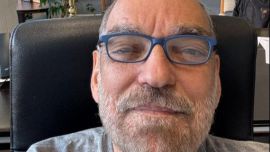








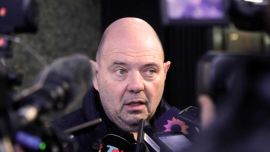
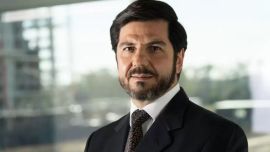

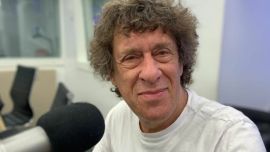
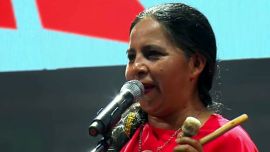
Comments